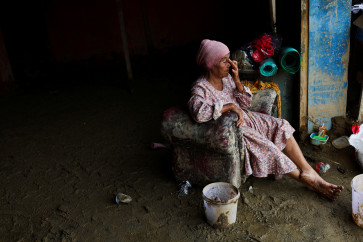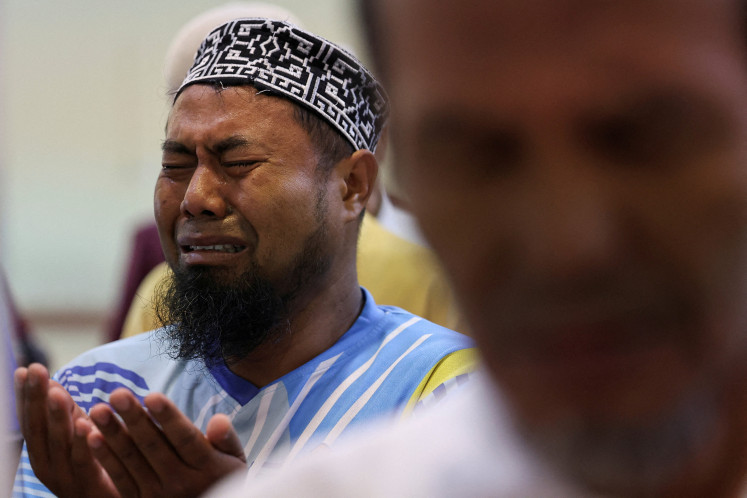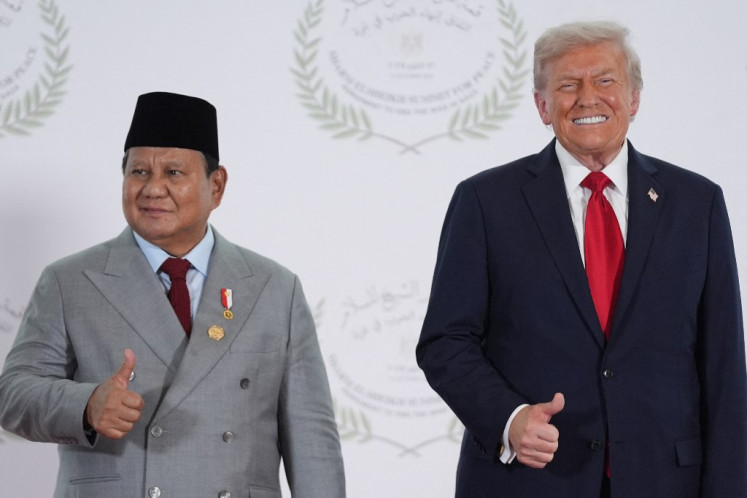Popular Reads
Top Results
Can't find what you're looking for?
View all search resultsPopular Reads
Top Results
Can't find what you're looking for?
View all search resultsHerbal medicine tycoons climb as commodity chiefs slide
Tycoons in the pharmaceutical and herbal medicine sectors have gained ground as Indonesians grow more conscious of health and well-being and the commodities business slumps
Change text size
Gift Premium Articles
to Anyone
T
ycoons in the pharmaceutical and herbal medicine sectors have gained ground as Indonesians grow more conscious of health and well-being and the commodities business slumps.
Forbes Indonesia has released its Indonesia’s 50 Richest List for last year, and among the big earners are the country’s top executives in the pharmaceutical industry. One of them is Irwan Hidayat, the director of publicly listed herbal manufacturer PT Sido Muncul.
He moved up 11 ranks to 30th place after earning US$350 million over the past year. His company’s sales in the third quarter of 2019 were recorded at Rp 2.13 trillion ($154.8 million), constituting 9.48 percent annual growth.
Sido Muncul’s overall growth was led by the sales of its herbal medicine and supplements segment, which grew 11.82 percent year-on-year (yoy) to Rp 1.4 trillion.
“One of the reasons herbal medicine sales went up was because people think that the medicine has fewer side effects than the chemical ones, so people keep buying the former,” Institute for Development of Economics and Finance (Indef) executive director Tauhid Ahmad told The Jakarta Post on Monday.
In addition, he said, herbal medicine was more affordable than prescribed medication, especially for minor illness such as the flu and stomachaches.
Boenjamin Setiawan, founder of the largest pharmaceutical company in Indonesia, Kalbe Farma, held fast at eighth place as he added $1.4 billion to his net worth last year.
Publicly listed pharmaceutical company Kalbe Farma’s sales grew by 7.33 percent annually in the third quarter last year to Rp 16.8 trillion. The distribution and logistics segment contributed the largest sales figures followed by nutrition and prescribed medication.
“Stable economic growth and the growing middle class in Indonesia encourage more spending on wellness as people become health-conscious,” Tauhid said.
According to the World Bank’s Aspiring Indonesia — Expanding the Middle Class report, the more affluent people are, the more they spend on health. The report showed that Indonesia’s middle class spent about 6 percent of its total consumption on health and education, while the upper class spent 9 percent.
That percentage represents an ever-larger figure as Indonesia’s middle class consumption has grown 12 percent annually since 2002 and represented 43 percent of total household consumption in 2016.
Another Indef researcher, Ahmad Heri Firdaus, said that there had been a rise in consumer goods sales as millennials — the largest demographic in Indonesia — became adults and spent more on health care.
“They also have a more health-conscious lifestyle, and this drives up demand for wellness products,” he told the Post.
Meanwhile, several business players in the commodities sector, such as coal and palm oil, saw a decline in their net worth.
Coal miner PT Bayan Resources chief executive officer Low Tuck Kwong, lost $1.33 billion in net wealth last year, putting him in 28th place on the Forbes list, down 17 places from his 11th-place ranking the year before. He experienced the steepest decline of those on the list.
The company’s coal sales dropped to $1.09 billion in the third quarter of last year from $1.13 billion in the same period in 2018. Sales of non-coal products dropped to $9.98 million from $15.73 million during the same period.
PT Persada Capital Investama president director Arini Subiyanto saw a $65 million drop in her wealth, a loss that dragged her to 49th place.
She inherited the company from her late father, Benny Subianto, in 2017 and oversees its investments in wood-processing products, palm oil, rubber processing and coal, among other areas.
“The commodities sector has been facing volatile prices over the past three years that show a downward trend,” Ahmad said. “This is affecting business players, especially those who do not diversify their businesses.”
The price of crude palm oil stood at an average of $507 per ton in November 2019, still lower than the $572 per ton recorded over the same period in 2018. Meanwhile, coal global prices steadily declined from $92.41 per ton in January 2019 to $66.3 per ton in December 2019.
Despite some tycoons’ slumping net worth and Indonesia’s sluggish economic growth, the country’s 50 richest still managed to add $5.6 billion to their combined wealth, which totaled $134.6 billion last year, Forbes data showed.










